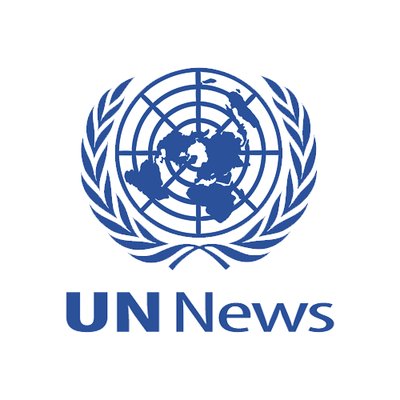Mr. Ginish is a National Field Coordinator with the Office for the Coordination of Humanitarian Affairs (OCHA) in Sudan. He recounts his experience of being evacuated from Khartoum, life in Port Sudan, and how he and his colleagues are trying to help the millions caught up in the conflict.
“Before the outbreak of violence on 15 April, I enjoyed a peaceful family life with my wife and three children in Bahari, Khartoum.
On that fateful day when the war started, I immediately realized that we were facing a critical situation, and this conflict could quickly escalate into a civil war in my beloved country.
When I think of wars, images of massive displacements, gender-based violence, destruction of infrastructure, looting and killings immediately come to mind. I could not believe this was happening to us.
For the first time in my life, I felt helpless. My children were terrified, and I could do nothing to help them. I was devastated and heartbroken.
Despite my personal struggles, I knew it was important for us humanitarians to stay and deliver because the lives of so many vulnerable people and children were at stake.
Thankful to be alive
I worked remotely while trying to grasp the magnitude of what was happening in our country and to our people. Luckily, my brother-in-law and I were able to gather some money to buy fuel and a few provisions before taking off by car to Gedaref State. The journey was extremely risky, and we did not know what awaited us along the way.
We were, however, pleasantly surprised by the degree of hospitality and generosity of the Sudanese people we met along the way.
Despite their meagre resources, these acts of kindness in times of distress were extended to everyone who was fleeing Khartoum in search of refuge.
I finally reunited with my family in Port Sudan, after being separated for sixteen days.
As the war raged on, many of us had lost everything we worked so hard for – our home, our possessions. Yet, we were alive, which is something to be truly grateful for.
‘Heartbreaking’ situation on the ground’
Today, I am still in Port Sudan, where I joined OCHA’s sub-office.
The good news is that I managed to evacuate my wife and three children to Saudi Arabia a few weeks ago. This is a temporary solution but at least for now, they are safe.
With everything at a halt in Sudan, being able to get them to a place where they could be safe and pursue their education – even if just online – was not an easy task.
The situation on the ground is heartbreaking. So many people have lost their homes, forced to flee so suddenly. Being an internally displaced person is a struggle, as you are constantly moving, facing overcrowding and sanitation issues, when all you want is to find a place to settle down long enough to rebuild your life.
Many are trying to reach Egypt, Saudi Arabia, or the UAE. Port Sudan has become the main gathering point. Unfortunately, with the resource constraints OCHA has, the services we can offer are limited.
Even if people haven’t lost hope for a ceasefire, the frustration is building up. High inflation, electricity power instability, and essential goods shortages make it impossible for internally displaced persons to survive on their own.
And, on top of that, the conflict has been exacerbated by a cholera outbreak in neighbouring states and we fear it might reach Port Sudan.
Against this backdrop of violence and suffering, our national colleagues truly stand out for their commitment, especially those working in remote parts of the country.
Their safety is not guaranteed, some of them have lost everything, and yet, they stay and deliver day after day without fail.
Being a National Field Coordinator Officer keeps me busy here. The silver lining in this chaos is that I have the opportunity to learn new things and take on more responsibilities while covering different regions of the country.
I am about to be deployed to the River Nile State office in the coming days as Head of Office ad interim, a new challenge that I am proud to take on.
I want to believe that the situation will improve, that peace will be restored, and that I will be reunited with my family. And, once peace is restored, I know we will fight hard to heal from the trauma.
Distributed by APO Group on behalf of UN News.
